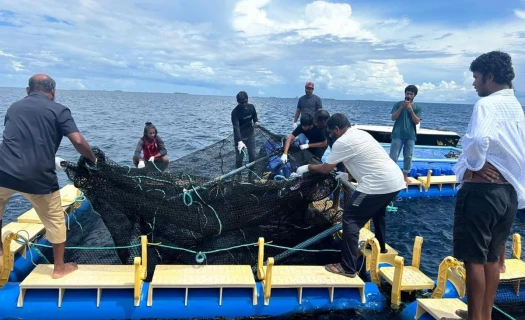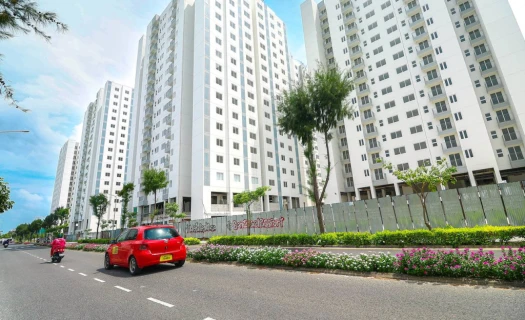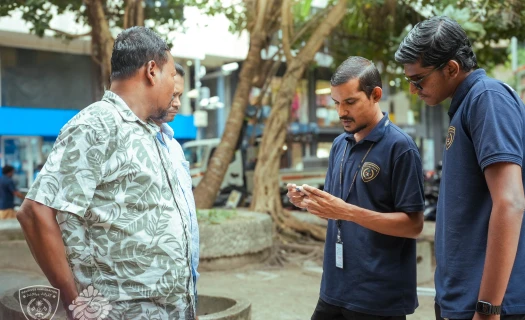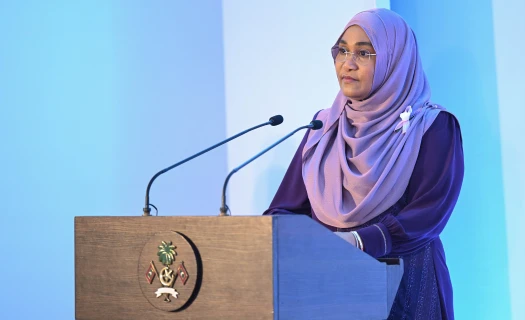Wed, 10 Sep 2025
|DHIVEHI
Addressing the drug crisis: Progress on two critical fronts
12 Jun 2025
|

Photo: Maldives Police Service
The drug epidemic remains one of the most pressing social challenges facing the Maldives. For years, the sense among the public has been that efforts to tackle the problem have struggled to keep pace with its growing complexity.
Recent developments suggest a shift; under President Dr Mohamed Muizzu’s Administration, the Government has placed renewed emphasis on addressing the drug issue in a more targeted and comprehensive manner. At the heart of this approach is the understanding that lasting solutions must tackle both the supply of drugs and the demand fuelled by addiction.
Tackling supply at its source
Curbing the availability of drugs has been prioritised through intensified enforcement efforts. In 2024 alone, the Maldives Police Service carried out 158 operations related to narcotics. Over 12,500 individuals were screened, with more than 1,000 taken into custody.
More tellingly, over the past 18 months, authorities seized around 700 kilograms of drugs, valued at MVR 1.4 billion, along with over 9,000 bottles of alcohol. These numbers mark a significant uptick in interdiction efforts and reflect a coordinated push to disrupt trafficking routes, particularly via sea and postal services.
To further support these measures, the Government is currently working to procure a container scanner, an essential step towards strengthening border control and ensuring more effective screening processes.
Strengthening the rehabilitation pathway
The other side of the issue – providing care and rehabilitation for those struggling with addiction – has also seen notable progress.
When the current Government took office, several individuals who had been court-ordered to undergo treatment were still on the streets, often due to logistical challenges and gaps in service provision.
In response, efforts were made to ensure that those in need are brought into treatment. Of the 586 people referred by the Drug Court last year, 419 completed treatment, and all were at least placed within the system.
In addition, the Government is working to expand community-based rehabilitation, aiming to offer more accessible pathways to recovery. There are also ongoing initiatives to support reintegration, such as employment programmes for those who have completed treatment.
Building capacity for sustainable recovery
Further investment is being directed at increasing treatment capacity. New remand centres focused on drug rehabilitation are being established in Gaafu Dhaalu Thinadhoo, Seenu Hulhudhoo, and Fuvahmulah City, supplementing existing facilities in Hulhumalé and Himmafushi. These centres are intended to support individuals removed from the streets for treatment and ensure continuity of care.
A measured path forward
Solving the drug crisis is neither quick nor simple. The roots of this issue run deep, and decades of social, economic, and systemic factors have contributed to its persistence. While no government can be expected to resolve such a complex challenge overnight, recent efforts suggest a more holistic and pragmatic approach is being taken.
By targeting both supply and demand, through enforcement, treatment, and reintegration, the foundations are being laid for long-term change. It will require continued coordination, investment, and political will; but for now, the early indicators offer a sense of cautious optimism.


Popular News







